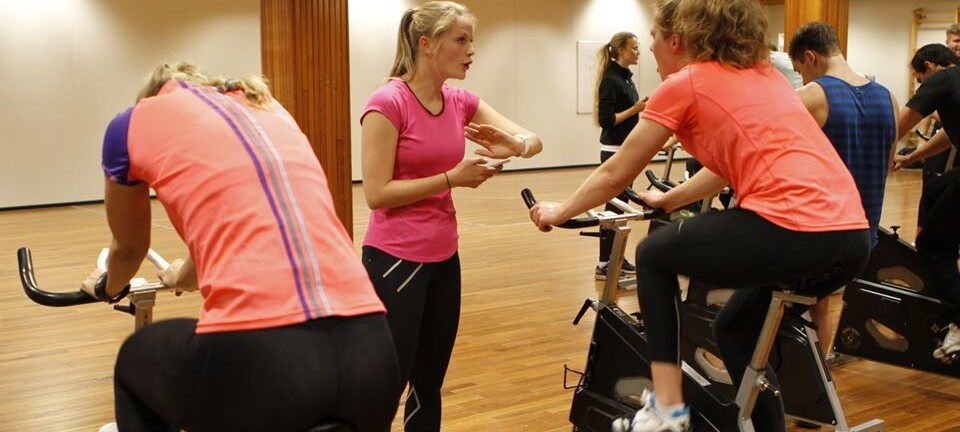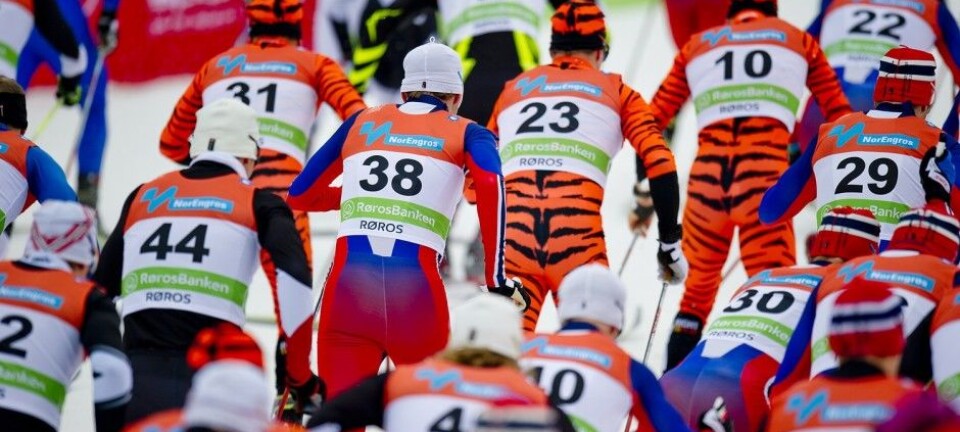This article was produced and financed by The Norwegian School of Sport Sciences - read more

Even a completely non-challenging stroll can significantly reduce your risk of premature death
Until now, professionals have said that you need to exert yourself to benefit from exercise. It turns out however that all and almost any activity is important. And the effect of doing something relatively minor is greater than previously thought.
A new extensive study using data from Norway, Sweden, England and the USA demonstrates this.
"This means that virtually everyone has something to gain," says Ulf Ekelund, professor of sports medicine at the Norwegian School of Sport Sciences (NIH). “It's genuinely positive.”
In the so-called meta-study, researchers have compared physical activity and mortality in more than 36,000 people over a period of 40 years. The 25 per cent least active people exercised "moderately intensely”, meaning a quick walk, for just two minutes a day, or a total of 15 minutes a week. The most active group exercised 38 minutes a day.
“The vast majority engage in very moderate activity, which most people hardly see as training. Simply parking the car or getting off the bus a little further away from your favourite pub, shops or work is positive”, says Ekelund.
“This is very easy for the vast majority to achieve.”
A few minutes have a significant effect
During the six-year study period, five times more people in the least active group died compared with the most active group. However, even among the 25 per cent who exercised moderately, mortality was only half that figure.
“This shows us that small changes in physical activity can have major health benefits,” says Ekelund.

The researchers divided the people into four similar-sized groups according to how much they exercised on average.
The least active group would only be on the move for about two minutes per day – while the second least active group exercised six minutes daily.
The moderately active group exercised moderately for 16 minutes per day, whereas the most active group exercised for 38 minutes every day on average.
Go for a walk, do a bit of gardening
The recommendations of both the World Health Organisation and US and Nordic health authorities are to do moderate to intense activity for at least 150 minutes, or 2½ hours, per week.
In the new study, actual activity is measured by an accelerometer, a sensor on the body of each individual. And the results show that even low-intensity activities such as gardening and a leisurely walk reduce the risk of premature death significantly.
“Furthermore, the effect on health is even greater than previously believed. And this is fully documented,” says Ekelund.
Double effect
To achieve a 35 per cent reduction in mortality, moderate to intense activity three to five times a week is the current recommendation. This surmounts to 7 to 12 hours a week.
"Our review demonstrates that if you merely meet the recommendations of 2½ hours a week, mortality is reduced almost twofold, nearly 70%," the professor says.
“All activity is of benefit, and this applies regardless of the age and level.”
Activity more important than training
As in previous studies, it appears that the effect is greatest on those who are the least physically active, but less is required, and the effect is greater than previously discovered.
Activity has a number of positive effects on health: It increases what is known as lipid metabolism and improves insulin balance, blood pressure and the immune system. In addition, you become stronger and improve your balance, which reduces the risk of injury through falling, for example.
In the study, researchers have compared around 36,000 people by looking at their physical activity level. They have made allowances for all the important factors that can play a part, such as age, sex, body mass index (BMI), socioeconomic status, smoking, and so on.
“The simple message is that you should sit less and be more active more frequently,” says Ulf Eklund. But you don't have to "train".
References:
Ekelund, Ulf et al, Dose-response associations between accelerometry measured physical activity and sedentary time and all cause mortality: systematic review and harmonised meta-analysis, BMJ, August 2019
Ulf Ekelund and Thomas Yates: “Sit less—move more and more often”: all physical activity is beneficial for longevity, thebmjopinion


































